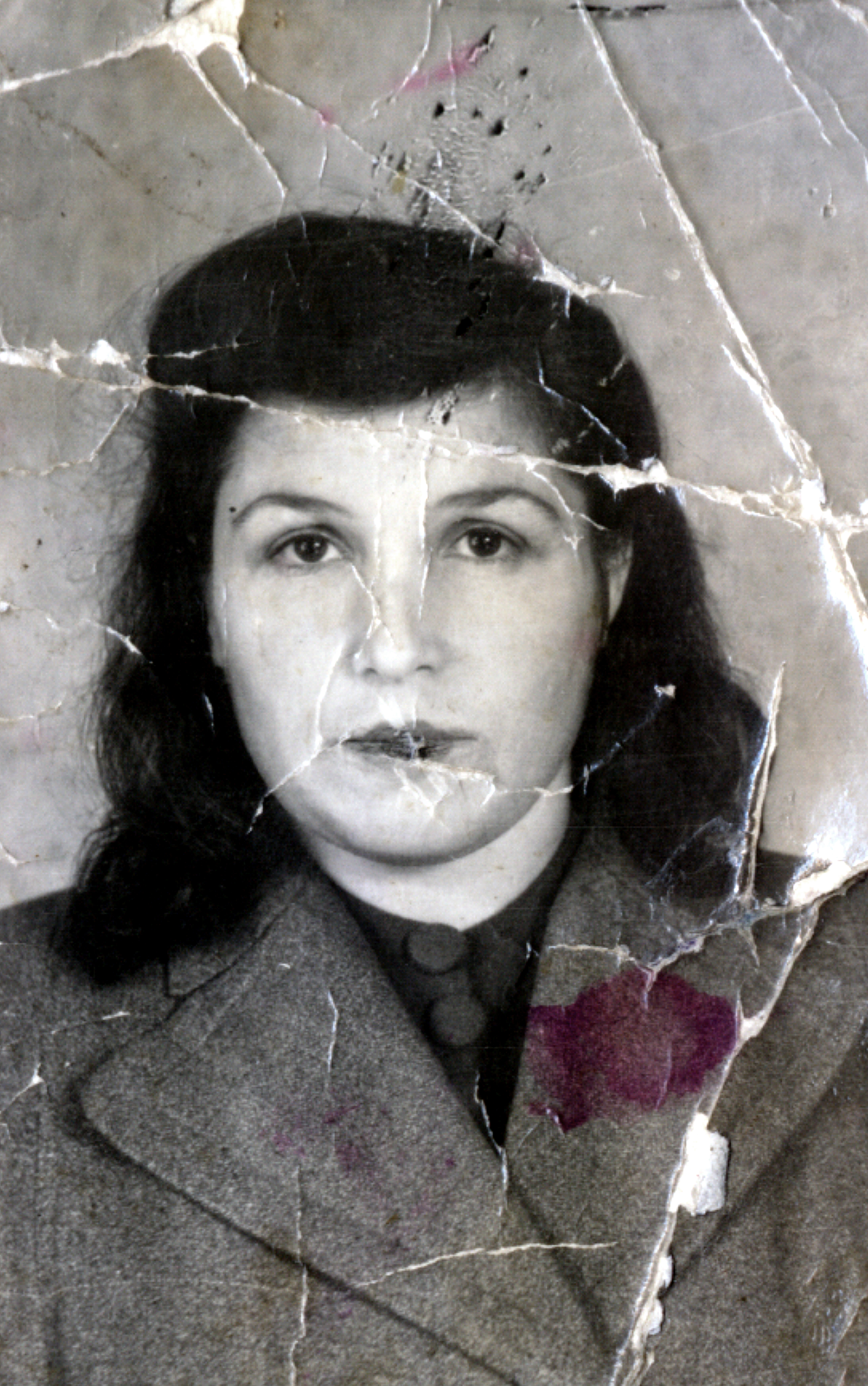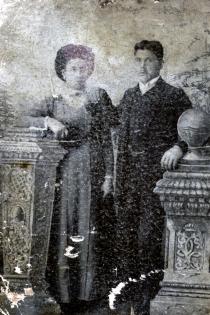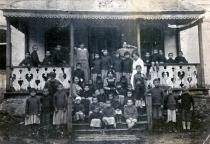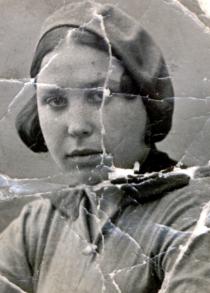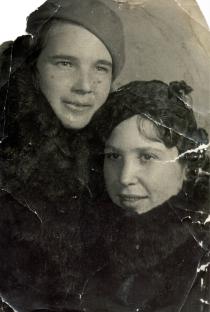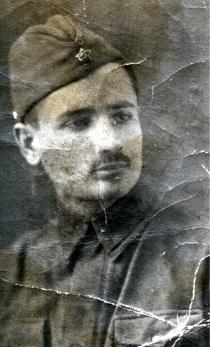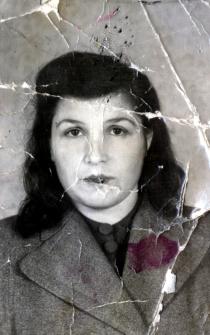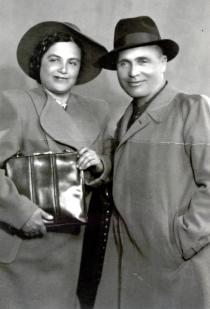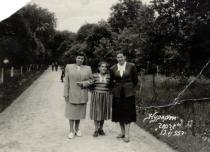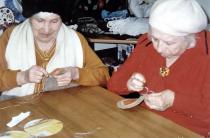This is a picture of me, taken in Kiev in 1945.
I returned to Kiev from evacuation in June 1944. I didn't have a place to stay and went to the Ukrainian family that had once given me shelter. They accommodated me again. A month later I got a job as an electric welder in a plumbing trust. I received a salary of 1,000 rubles. I got back the room where I had lived while I was working at the Central Post Office. I got a one-month assignment to restore the mines of Donetsk, along with several other workers, in September. When the month was over we were told that we had to stay for another six months. I left the place without permission, but the management didn't have a problem with that. Shortly after I returned, I was sent to a one-year course of advanced training at the Institute of Electric Welding. I received a stipend of 300 rubles, which wasn't enough to live on. Uncle Abram, my mother's brother, found me soon after he returned from evacuation and we cried after my sister Hana, who died in 1942, together. He began to support me like he did before the war.
My cousin Olte told me that Grandfather Srul had let my father know that I survived and was in Kiev. My father asked him to tell me to write to him. I was in a conflict: My father had left me and my sister Hana when we were small children, and we were suffering. At the same time I was longing for a father's warmth, or, just wanted to know that there was someone of my own kinship. In the end, I did write to my father, beginning my letter with the words, 'Hello, my unknown father ?'.
He came to Kiev immediately, brought me gifts and money and bought me clothes. My father told me that he and his wife Evdokia lived in Leningrad. I forgave my father and loved him. He was a very impulsive person; when he liked someone he poured kisses and gifts onto that person. The problem was that he was too full of love and for that reason he had left my mother. In 1947 my father married Lisa, a Jewish woman. This was his third marriage. They lived in Leningrad. He often wrote me, but he only visited me two or three times, always bringing gifts. I couldn't afford to go to see him, but I always wished him well on all holidays. My father died in Leningrad in 1968.
A few months after my father and I first met, he began to insist that I got married. I used to see young men before. One of them, Izia from Tomashpol, asked me to be his wife. However, I didn't love anybody. Perhaps, my heart wasn't made for love, or, maybe I had given all my love to Hana. My father made arrangements with a shadkhan - matchmakers that still existed in small towns, even though they did their business secretly. When they found a decent young man that proposed to me. I gave my consent under my father's pressure.
My fiancé Leonid Postrelko was born in 1914. He lived with his parents in Kiev before the war. His father Pinhus and mother Malka perished in Babi Yar in Kiev. Leonid was at the front and received several awards. My father gave us money for my wedding. I had a long, white gown with a long train. We got married in summer 1946. There was a chuppah in the only operating synagogue in Podol. My father wasn't religious, but all relatives from both my mother's and father's side insisted that I had a traditional wedding. The wedding party took place at Olte's house. My relatives and friends came to the wedding. There was traditional Jewish food on the table including gefilte fish. The guests ate and drank, danced and sang.
Well, we separated after three months. I didn't love Leonid, but I was young and needed a man. He couldn't give me the joy of fleshly love and a few weeks after the wedding I took a lover. After I left my husband, he came to see me and was very angry with me. He wrote a letter to my lover's wife. She came from Uman and took him back home. I remained indifferent to this incident, too: I didn't love my lost lover either. I never saw my husband again. I know that he lived in Kiev and was married. I think he's probably dead by now.
